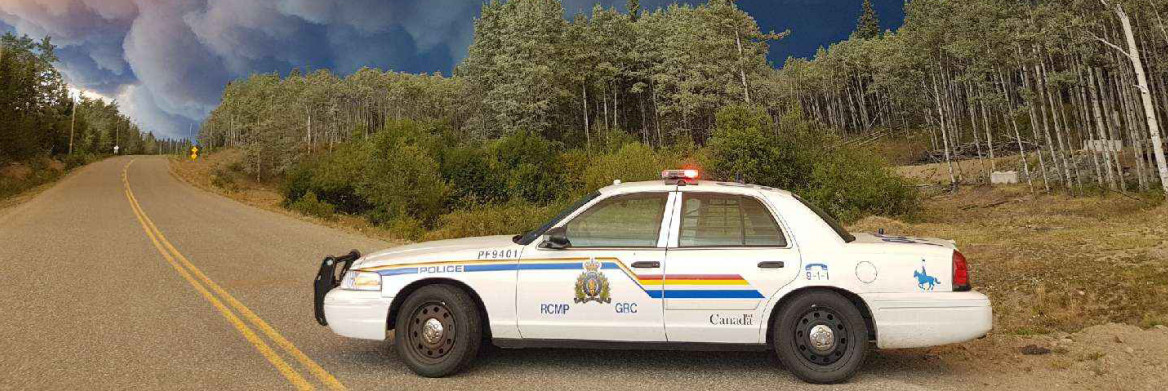Related link
As fires ravaged the forests of British Columbia last summer, RCMP officers worked long shifts to protect threatened communities — and a team of colleagues, in turn, worked to look after them.
"Taking good care of our members not only helped with their immediate well-being, it also contributed to better morale," says James Browne, the Acting Regional Chief Occupational Safety Officer in British Columbia. "And keeping morale high maintains officers' ability to make better risk assessments when they're on the ground so they can make good decisions and ultimately protect people and property."
In the summer of 2018, wildfires in the northern and southeastern parts of British Columbia prompted multiple evacuation orders and alerts for residents in nearby communities. Those declarations affected tens of thousands of people and in August the province declared a state of emergency.
As the forests burned, hundreds of RCMP officers were sent on seven-day deployments in the fire zones to operate checkpoints, help with evacuations, protect property and relieve officers at local detachments. Many officers served two or three tours.
During that time, the health and wellness of those officers was monitored by two roving teams of two peer-to-peer officers. Those teams were tasked with driving thousands of kilometres around the province to visit their co-workers on the front line of the fires.
"They were there to listen and to respond to the needs of the officers as best as possible," says Sgt. Gus Papagiannis, in charge of support services in British Columbia. "They were there to go and see the members and ask: 'How was your shift, how did you sleep, how is your family, do you need anything?'"
Pressures of the job
The strain of working in a dangerous environment away from the comforts of home can create a lot of stress. But for some RCMP officers, that pressure was multiplied because their own families and homes were being evacuated. To help, accommodations for families were made available at the Pacific Region Training Centre (PRTC) in Chilliwack, B.C.
Papagiannis says those efforts, along with the support of the peer-to-peer teams, showed officers they weren't being forgotten.
"Knowing their families were OK and having two people out in the theatre made a world of difference," says Papagiannis. "It was important for the officers in the field to know that we listened and that we tried to close the loop for them as we worked to address their concerns."
He added the peer-to-peer teams weren't in the field to act as counsellors, but if mental health supports were requested, they would be made available.
"It's been my experience that when we treat people well, give them the resources they need to do their job and listen to and address their concerns, they'll move mountains for you," he says.
Post-fire feedback
When the fire-zone officers returned to the regional training centre in Chilliwack after their deployment, they got another chance to talk — or debrief — about their experience. At the training centre, they were met by a commissioned officer to collect feedback. Their comments included a mix of complaints and praise over accommodation, morale, long travel days, rest and the availability of the peer-to-peer team.
There was also some grumbling about food availability, which ranged from low supplies, lack of restaurants near lodgings and some eateries shutting down too early.
"Food was a big issue, and some recommended mobile kitchens be deployed," says Papagiannis, who says that information was subsequently sent to the command group who worked hard to address those concerns.
C/Supt. Stephan Drolet, who was responsible for overseeing RCMP deployments during the wildfires, called the feedback crucial.
"It gave us a great opportunity to improve our operations and better support our members," he says.
It's important data because deployments to fire zones are likely to continue.
"The forests are tinder dry and we need to ensure the well-being of those officers is taken care of and ongoing since it's possible we could see another round of fires in 2019," says Browne.
"We have to be prepared."
